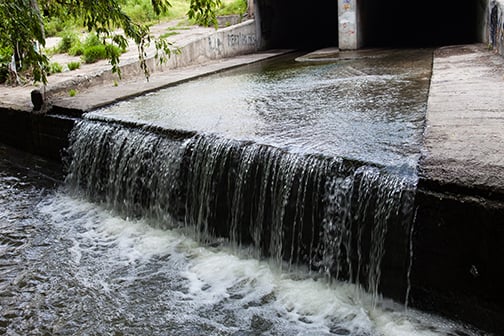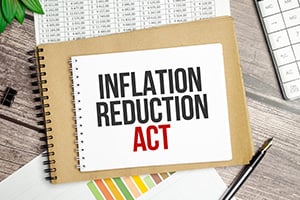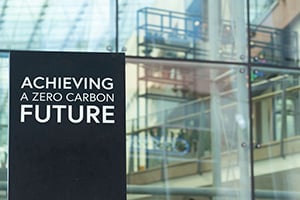 Damage to commercial property resulting from stormwater runoff is a serious growing environmental concern throughout Georgia, the Southeast, and the nation. Stormwater runoff can impact commercial businesses, home associations, homeowners, neighborhoods, towns and cities. In fact, stormwater runoff has become one of the most important issues facing commercial and residential developers today.
Damage to commercial property resulting from stormwater runoff is a serious growing environmental concern throughout Georgia, the Southeast, and the nation. Stormwater runoff can impact commercial businesses, home associations, homeowners, neighborhoods, towns and cities. In fact, stormwater runoff has become one of the most important issues facing commercial and residential developers today.
The U.S. Environmental Protection Agency (EPA) reports that stormwater runoff is one of the top causes of water pollution in the country. The EPA says that approximately 30 percent of pollutants in our waters result from stormwater runoff. Revisions to the Clean Water Act (CWA) and the creation of the National Pollutant Discharge Elimination System (NPDES) attempt to address serious problems caused by stormwater runoff.
Storm Water Design, Quality Control and the Law
Developers, businesses, municipalities, and residential communities must address changes in hydrology, the natural water cycle, and resulting runoff that occurs when man interacts with the environment. According to Georgia Stormwater Management Manual (Volume 1), residential development of the land causes about 50 percent of stormwater to runoff into lower-lying properties and streams.
In contrast, commercial development forces almost 100 percent of stormwater runoff to low-lying property and waterways. The impact of human interaction ultimately reduces the amount of water that recharges and feeds adjacent aquifers and streamflows. Although the natural relationship changes between soil and water may seem unimportant at first glance, hydrology deeply affects environmental sustainability.
Construction sites must meet certain criteria to receive permit coverage under the Georgia General Construction Permit [The Georgia Environmental Protection Division Authorization to Discharge under the NPDES No. GAR 100003]. In addition, developers must adhere to:
- CWA Section 402, prohibiting pollutant discharge without a NPDES permit, or violating an existing NPDES permit
- Defined regulations and liabilities as required by Georgia State laws
Georgia’s laws relating to best practices (BMPs), prevention and reduction of pollution, and proper implementation of construction activities are complex [GAR 100003, Part III(C)(1)&(2)]. The proper design, installation, and maintenance of BMPs is a serious matter, requiring developers and others to monitor and report disqualifying events as defined [GAR 100003, Part IV (D)(5) & (E)]. Sustainable Investment Group (SIG), a full service consultant, assists clients in meeting or exceeding standards relating to stormwater runoff.
Failure to implement BMPs at commercial or residential development sites can be problematic. Development activities typically result in higher volumes of stormwater runoff as the developer creates more impervious surfaces, such as roads or parking lots. If clearing, filling, excavating, and grading activities have occurred, BMPs typically include the establishment of detention ponds, sufficient ground cover, silt fencing, hay bales, etc. Failure to install and maintain these controls can contribute to excessive sedimentation and erosion damage. In turn, these results prompt verbal warnings, delays, or stop work orders from city or municipal authorities.
Impact of Development on the Environment
Growth of municipalities and towns often extends to deforestation or stripping of land to pave highways, parking lots, streets, and driveways. Deforesting or stripping even a small area can cause adjoining natural lands significant harm.
Stormwater runoff is known to pick up and carry pollutants, including toxic chemicals, bacteria, oil, grease, and dirt to low-lying land and streams. Developers neglecting to install and maintain proper systems and controls face stiff legal fines and higher costs. Over time, pollutants aggregate in the soil and, when new stormwater runoff occurs, these harmful compounds flow into rivers and streams once more.
Stormwater runoff causes floods, pollution, and erosion. Streams, rivers, waterways, and the life within them are also at serious risk. EPA studies show that certain fish species die within hours of exposure to stormwater runoff.
Georgia’s environmental protection laws relating to development and building are very complex. The engagement of experienced consultants can guide builders and developers every step of the way. Desirable LEED Certification is an achievable goal when consultants are engaged at the start.
Sometimes, seemingly small infractions can have a large, lingering impact. Developers must ensure that proper environmental controls are in place. Sustainable Investment Group (SIG) provides cost-effective consulting services to assist clients in achieving these goals.
Residential Subdivisions and Commercial Strip Malls
Stormwater runoff affects residential associations and small businesses throughout Georgia. These entities must consider financial liability when erosion or sediment controls are violated. For instance, homeowner associations must maintain water features or man-made lakes as part of their legal covenants with members. Managing stormwater runoff is a serious issue and requires immediate mitigation.
Few natural lakes exist in Georgia, but developers’ impoundments cause sediment to deposit. The effect of damming can cause changes to natural vegetation. Topsoil is frequently stripped when man-made land disturbance occurs. Resulting “silting” of ponds is unsightly. Sedimentation, also considered a pollutant, reduces recreational use and even reduces the financial value of the property.
The alteration of Georgia’s ecosystems results in degraded water quality, offending odors, and wildlife kills. Georgia’s Department of Natural Resources Environmental Protection Division requires a notice of intent to discharge stormwater prior to excavating or disturbing land.
Prior to initiating these activities, developers must submit erosion and sedimentation pollution control proposals. These proposals are the basis of the developer’s certification that it understands regulations and laws.
Responsibilities Concerning Stormwater Runoff
Developers, home associations, and others must be aware of the legal and moral necessities regarding property water management. After moderate or heavy rainfalls, property owners or home associations should plan for periodic municipal inspections related to stormwater runoff. A USGBC member firm like Sustainable Investment Group can help clients to prepare for and achieve compliance.
Stormwater runoff causes contaminants from paved surfaces, parks, streets, and sidewalks into commonly shared storm drains and sewers. In Georgia’s coastal environment, stormwater runoff also causes changes in freshwater flows and life in the salt marshes. Hydrology changes can also harm coastal marine life. Stormwater runoff contaminants cause shellfish closures, algae blooms, and fish kills.
Stormwater Runoff and Sustainability
Stormwater runoff is an expanding issue for everyone. Economic incentives to achieve and maintain compliance are likely to expand as well. Staying on top of myriad requirements and regulations can challenge even the largest, best organized businesses and organizations.
The true costs and actual benefits of stormwater runoff control affect a broad range of values. Property values will continue to be affected in part by the establishment of green infrastructure.
Many opportunities exist for today’s municipalities and stakeholder groups to implement or exceed current requirements. For instance, low-tech, green management practices can accomplish stormwater runoff control at a fraction of the cost of other commercially available solutions.
LEED Certification
Contact Sustainable Investment Group (SIG) to learn more about LEED Certification and LEED credits that relate to stormwater management. SIG is headquartered in Atlanta and works with clients throughout the U.S.
We are a full-service green building consulting firm offering technical solutions to design, building operations, construction, and real estate operations professionals. We are a USGBC member company, offering nationwide LEED Consulting, ENERGY STAR certifications, corporate sustainability services, LEED Exam Prep training classes and more.
© 2015 Sustainable Investment Group (SIG). All Rights Reserved.



